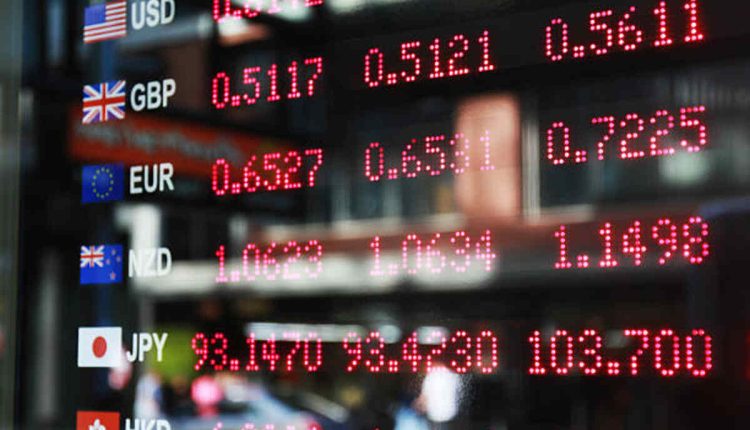Types of Forex Trading Accounts
Forex Trading Accounts offer traders access to the foreign exchange market, enabling them to buy and sell currency pairs. Opening one with a regulated broker provides leverage, trading platforms, and risk management tools that enable traders to do just this. What do you consider about forex robot.
A Forex account can be opened with various brokers. Each offers different trading conditions and lot sizes.
Types of forex accounts
There are various kinds of forex accounts, each designed for specific reasons. A standard account offers traditional trading conditions and allows traders to trade in lots that represent 100,000 units of their base currency; mini accounts offer reduced lot sizes that are suitable for beginners or risk-averse traders; managed accounts allow your money to be placed with professional investors who will make trades on your behalf;
Forex trading is an increasingly popular investment activity and can be highly rewarding if done with care and understanding of both the risks and rewards of this market. When selecting an account type that best matches your resources and goals, choosing an asset like a forex that has trillions traded daily may provide investors a way to diversify their portfolio while also potentially opening themselves up to large losses due to high leverage can reduce risks dramatically. To reduce these risks, consider opening a demo account first before investing real money.
Mini accounts
Forex mini accounts provide traders with an ideal way to experience trading the forex market without risking too much real money. These accounts allow traders to trade using smaller lot sizes, thus lowering risk and potentially increasing profit potential. They also offer numerous trading conditions including lower spreads and more currency pairs.
Forex mini accounts also allow traders to trade with reduced leverage ratios than standard accounts, which can help beginners practice trading strategies and build confidence in the Forex market. But keep in mind that leverage can magnify both profits and losses exponentially.
Finding the appropriate Forex account type depends on your individual needs and trading goals. When making their selection, traders should take into account factors such as minimum deposit amount, trading conditions such as spreads and fees, regulation, customer support, and trading platforms before making their final choice. Furthermore, traders must always be mindful of potential risks related to trading; responsible risk management techniques should always be utilized. When selecting any account type be sure to do your research and compare options thoroughly before choosing a broker.
Standard accounts
Standard forex accounts provide traders with a more sophisticated and comprehensive trading experience when compared with Mini Accounts. Usually requiring a larger initial deposit and offering higher leverage and greater trading opportunities, standard accounts give traders access to various tools and platforms including the MT4/MT5 platforms as well as fast execution speeds which make them suitable for scalpers and day traders.
Your choice of forex trading account will depend on your experience, risk tolerance level, and financial goals. A standard account allows traders to trade up to $100,000 worth of currency at once; mini or micro accounts cap it at 10,000 units maximum lot size. ECN and Market Maker accounts offer access to liquidity providers or internalized prices while fixed or floating spread accounts provide no price changes when placing trades while variable spread options fluctuate during trading sessions.
Leverage
Leverage can be an attractive feature of forex trading, yet it increases your risk. Leverage, often expressed as a ratio, magnifies your trades’ buying power by depositing funds into what’s called a margin account as collateral against broker loans.
Margin requirements depend on your broker; for instance, forex dealers typically require 10% of your position value as initial margin – for instance, a trade worth $100k would require an initial investment of $10,000.
Some brokers offer fixed leverage ratios of 50:1, while others may change them based on market conditions and fluctuations, known as volatility, that could make or break traders’ profits. Even minor exchange rate fluctuations could cause devastating losses that wipe out an entire trading account. Therefore, traders should carefully consider their risks before using leverage – using it ideally should boost profits while decreasing risk exposure; which makes choosing your broker wisely so important.
Trading platforms
Many Forex brokers provide their clients with trading platforms designed to facilitate trading on the Forex market. These platforms include various tools and features designed to facilitate trade execution as well as monitor their performance while offering risk-free accounts which allow novice traders to practice strategies without jeopardizing any real funds. They’re an invaluable resource for learning the ropes.
Traders can leverage various technical analysis tools and indicators on their Forex trading platform to make informed decisions regarding the direction of their trades while using stop loss as a risk management measure to limit losses – these stop losses act like pre-set price points at which your trade will automatically close, so they help prevent you from losing more than you can afford to lose.
MetaTrader 4 is one of the premier Forex trading platforms available today, providing traders with tools that allow them to manage both risks and profit potential effectively. These tools include a depth of market (DOM) function as well as technical analysis pattern recognition software from Trading Central. Furthermore, its unique order execution model features partial closing with time-based stops.

